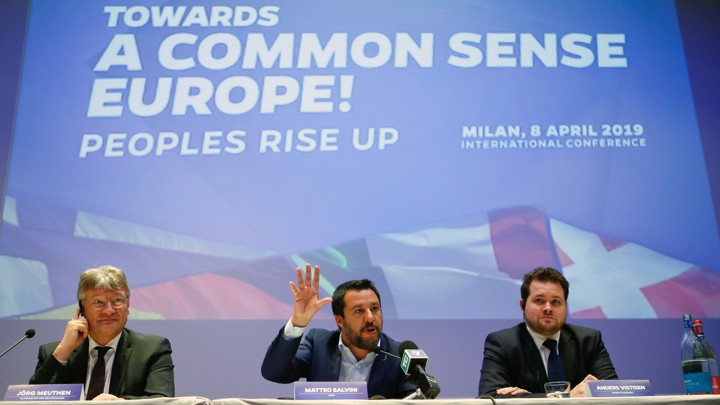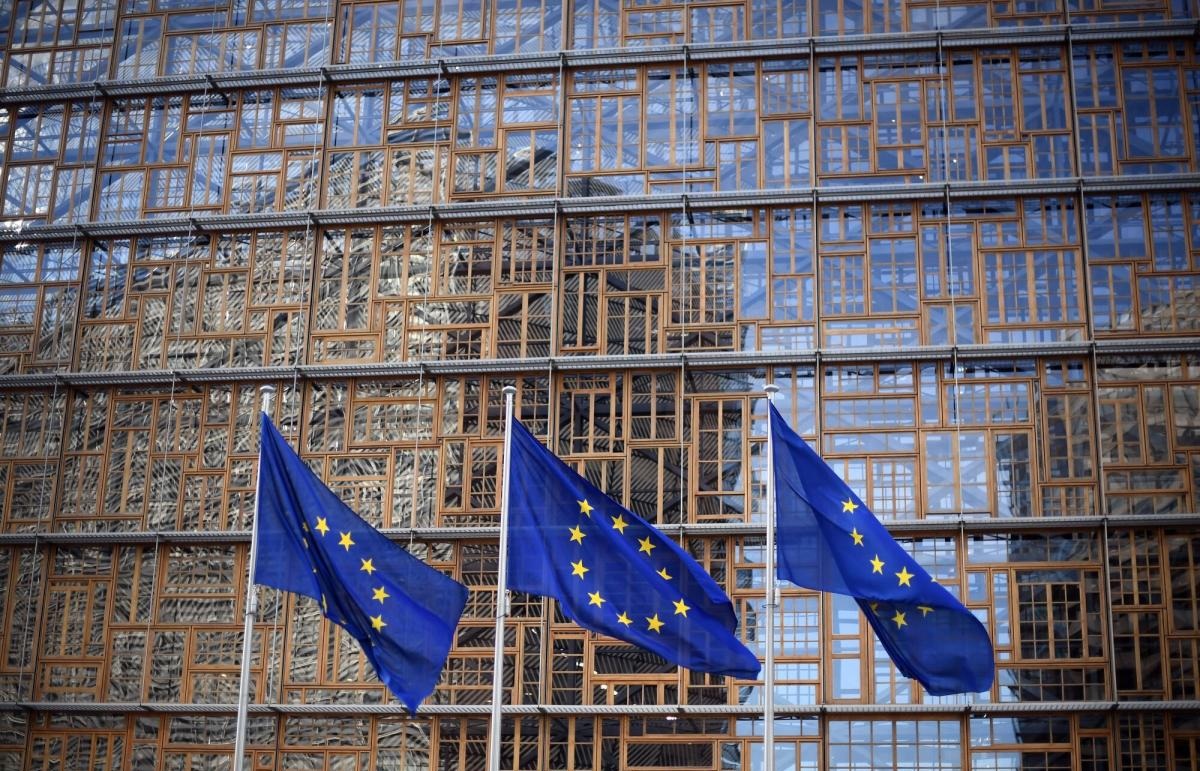By Katrin Bennhold, Amanda Taub and
FRANKENSTEIN, Germany — They called it the Frankenstein coalition, and not just for the location.
European Center for Counterterrorism and Intelligence Studies in Germany and Netherlands.
When the Frankenstein chapter of Chancellor Angela Merkel’s conservative party defied Berlin and formed an alliance with the far right in the village council, some considered it monstrous. To many, the alliance violated one of the biggest taboos in German politics: that no mainstream party collaborate with the far right. “A red line was crossed,” said Eckhard Vogel, the mayor of Frankenstein, a centrist who belongs to neither party. “You can’t go to bed with people like that.”
In Frankenstein, a small village in southwestern Germany, Ms. Merkel’s Christian Democrats and the Alternative for Germany do in fact share a bed, literally: They are husband and wife. That is one reason the case has captured the imagination of Germans in recent weeks. Another is that a creeping cooperation between mainstream parties and the far right, unthinkable only a couple of years ago, has become strikingly common at the local level, with potentially cascading consequences for European democracy.
Across Europe, embattled traditional parties are grappling with how to deal with the disruptive force of the far right: isolate and contain it, or work with it in hopes of winning back voters? In many places, the far right’s market share is too big to easily ignore. Three years into the populist backlash, far-right lawmakers have become familiar faces in many local and national legislatures in countries like Norway, Italy and Denmark.
In the most recent example, two years after joining forces with the far-right Freedom Party, Austria’s conservative party leader, Sebastian Kurz, took more than 250,000 votes from his erstwhile partners and triumphed resoundingly in the Sept. 29 elections.It helped Mr. Kurz that the Freedom Party had been embroiled in scandals that ended their coalition government. But he had also taken up much of their agenda on issues like casting migration as a threat to Austrian identity. The coalition strengthened the center-right and weakened the far right. But in the process it also pushed Mr. Kurz’s conservatives and the whole country sharply to the right, raising the question: Who is co-opting whom? A similar pattern is playing out across Europe. From Britain to Norway, center-right and far-right parties, supposedly sworn enemies, have come to either collaborate directly or to co-opt one another’s policy platforms and voter bases.“Noncooperation pacts have tended not to last,” said Elisabeth Ivarsflaten, a political scientist at the University of Bergen in Norway, referring to rules set by centrist parties against working with the far right.It follows a pattern, she said: “The noncooperation pacts get challenged or broken. There are experiments with coalitions on a local level, and then eventually the national level catches up.”
In Germany, the official line from mainstream political parties is clear: Any alliance with the far right is categorically banned.National officials with the Christian Democrats warn that cooperation could legitimize the far right’s nationalist populist agenda and undermine the values that underpin German democracy.
Annegret Kramp-Karrenbauer, the leader of the Christian Democrats and possible successor to Ms. Merkel, has accused the Alternative for Germany of creating an “intellectual climate” in which a far-right extremist shot Walter Lübcke, a regional government official, in June — the first far right assassination of a politician in Germany since World War II. Whoever toys with the idea of working with the Alternative for Germany, or AfD by its German initials, Ms. Kramp-Karrenbauer said recently, “should close their eyes and imagine Walter Lübcke.” But enforcing a ban on the local level has proved tricky. In small towns, the local face of the AfD may be the doctor or firefighter. Political ideology feels less of an obstacle when the issues of the day are things like road repair or renovating the nursery school. That may be one reason breakdowns in Germany’s mantra to isolate the far right are becoming more common in local governments.
A recent report by ARD, Germany’s public broadcaster, identified at least 18 cases of cooperation. In the northern town of Eilsleben, the Christian Democrats invited an AfD representative into their group. In Görlitz, near the Polish border, an AfD candidate was elected to a local committee after receiving support from mainstream parties in the town council. In Chemnitz, where far-right protests saw AfD leaders march side by side with neo-Nazis last year, the AfD recently helped the Christian Democrats gain control of a number of social projects traditionally run by the left. In one case, in the southeastern village of Gorisch, there was even a coalition of Christian Democrats, the AfD and the center-left Greens.
Even when there is no formal alliance, there are a growing number of incidents in which conservatives and representatives of the AfD vote together, local officials say. “They tell you it’s coincidence,” said Jörg Rakete, the mayor of the eastern town of Döbern and a member of the Social Democrats. “Let’s just say the coincidences are piling up.” These breaches at the local level are not happening only in Germany.
Once far-right parties have held office for a term or two, many voters see them as normalized and will punish mainstream parties as antidemocratic for keeping them out of governing coalitions, according to a forthcoming study led by Ms. Ivarsflaten. Europe, Ms. Ivarsflaten said, appears to be repeating what happened in Norway with the rise of the hard-line Progress Party. “They were seen for a long time as a party that you couldn’t cooperate with,’’ she said. ‘‘They were considered too radical, too unstable, and that their position on immigration was beyond the pale.” “Gradually, over time, they began taking part in local governments,” Ms. Ivarsflaten added, until, eventually, Norway’s center-right party dropped its ban on partnering with them.
Last year, centrist parties finally joined them in a coalition, all but ending the taboo. That is why politicians like Franziska Brantner, a lawmaker for Germany’s Greens, oppose giving the AfD the opportunity to govern at any level. “It’s a slippery slope,” said Ms. Brantner, whose own party’s recent success builds on years in local politics. “If the AfD gets a foot in the door,” she said, “the danger is that they will push it wide open.”
But isolating the far right has become more costly. Although support for the far right has been growing slowly for decades, in 2016 and 2017 nationalist parties across Europe crossed a significant threshold, winning seats in national legislatures. Refusing to cooperate with democratically elected representatives strikes many constituents as undemocratic. “It is an insult to the voters,” said Uwe Junge, a state legislator for the AfD and former Christian Democrat. “As if we were the undemocratic ones!”
As populists win more seats, policies to exclude them can backfire by appearing to validate the far right’s claim to represent the will of the people against a corrupt mainstream elite. In Germany, the political establishment has at times taken extreme measures to keep the AfD out of office. In one recent mayoral race in Görlitz, parties from across the political spectrum united behind the Christian Democrat to block the rival AfD candidate, who still won 45 percent of the vote. As bottom-up pressure to work with the far right grows, some national leaders, short of forming coalitions with it, have echoed its language or edged closer to its positions.
In the Netherlands, Prime Minister Mark Rutte said, as part of his efforts to head off a far-right surge in the 2017 elections, that immigrants should “act normal or go home.” In Britain, Prime Minister Boris Johnson has essentially co-opted the platform of the far-right Brexit Party. When moderate lawmakers in his Conservative Party objected, he expelled them. “Are we really that afraid?” asked Martin Patzelt, a conservative German lawmaker and a rare voice in Ms. Merkel’s party who urges engagement with the far right. “The voters of the AfD vote for them because they are afraid. And our politicians fight the AfD because they are afraid.” “Everyone is afraid,” Mr. Patzelt said. “But if you are guided by fear, you lose your political identity.”
In Frankenstein, a version of the same debate is playing out. Monica Schirdewahn, the Frankenstein conservative who went into coalition with her AfD husband, said she was getting support from fellow conservatives who want to rethink the taboo of working with the AfD. “This is democracy,” she said. “If you exclude a party, you exclude its voters.” Frieder Wagner, a retired chemical worker who was in the local village bar one recent evening, disagreed. “Haven’t we learned from history?” he asked. The Nazis also came to power in a coalition, he said. “And then democracy died.”
European Center for Counterterrorism and Intelligence Studies in Germany and Netherlands.




